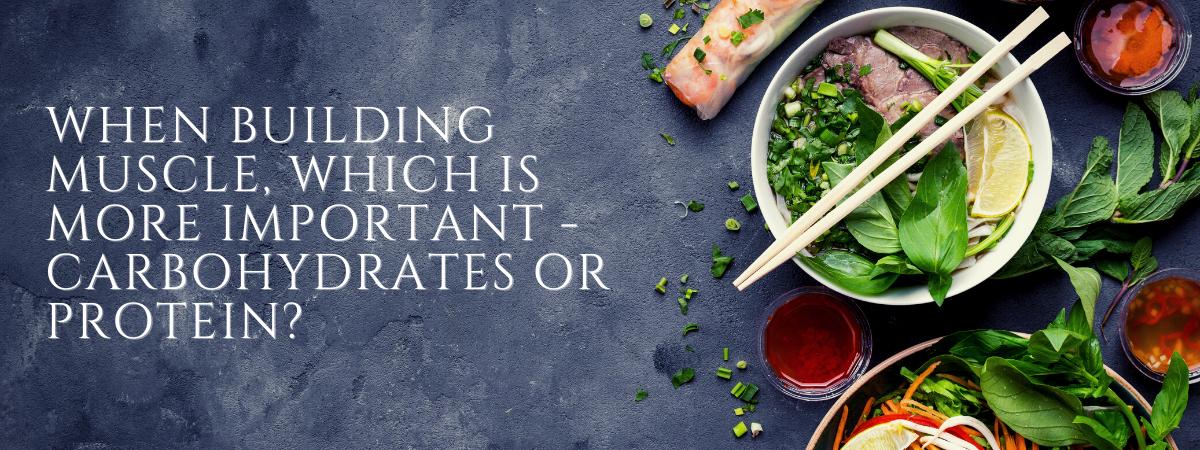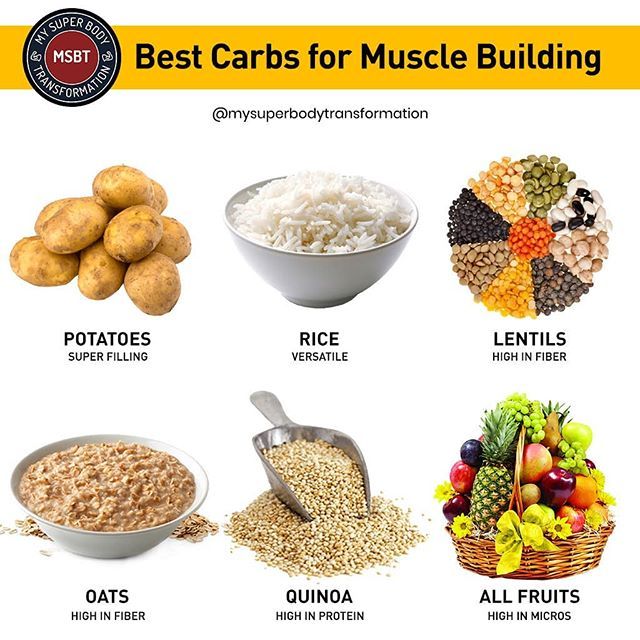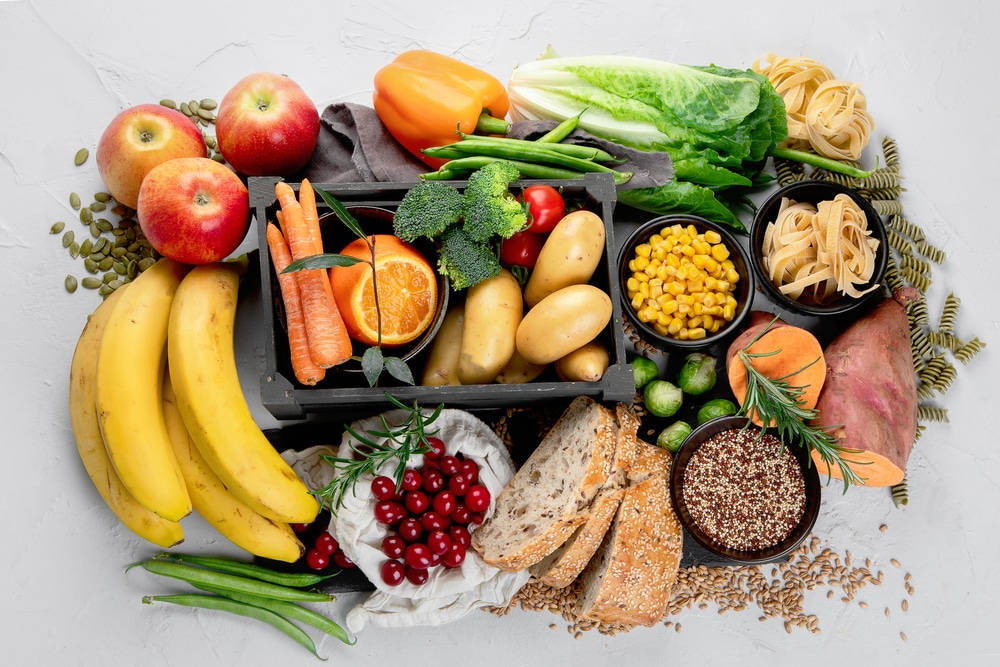Discover the Best 7 Carbohydrate Options for Effective Muscle Building in 2025
When it comes to muscle building, carbohydrates play a crucial role in providing the energy required for high-intensity workouts and facilitating recovery. In 2025, understanding the best carbohydrate sources for effective muscle building can enhance your athletic performance significantly. Not only do carbs help replenish glycogen stores depleted during exercise, but they also aid in muscle repair and growth by ensuring an optimal environment for proteins to work effectively in the body. This article will explore the top carbohydrate options that support muscle development, performance in strength training, and overall nutrition for fitness enthusiasts and athletes alike.

Essential Carbohydrate Sources for Muscle Growth
To maximize muscle mass and enhance training results, incorporating quality carbohydrate sources is essential. Building on the premise that adequate carbohydrates lead to better performance in strength training, choices made in your diet can have significant impacts on energy levels and recovery. Here, we will discuss seven carbohydrate-rich foods ideal for muscle building.
1. Whole Grains: The Staple Carb Source
Whole grains such as quinoa, brown rice, and oatmeal are nutritional powerhouses packed with complex carbohydrates, which provide sustained energy for workouts and daily activities. They also offer an array of vitamins, minerals, and fiber that promote overall health. Including whole grains in your meals can help maintain stable energy levels, essential for effective resistance training and muscle recovery. An added bonus of whole grains is their lower glycemic index, helping manage steady blood sugar levels, which is crucial during intense workouts.
2. Sweet Potatoes: Nutrient-Dense and Versatile
Sweet potatoes are another excellent carbohydrate option. Rich in vitamins A and C, dietary fiber, and complex carbohydrates, they serve as a fantastic pre- and post-workout meal. The high carbohydrate content supports glycogen replenishment after exercise, enhancing muscle recovery. Incorporating sweet potatoes into meals can also contribute to muscle definition and weight management goals. Try roasting them or mashing them as a nutritious side dish.
3. Fruits: Natural Sugars for Quick Energy
Fruits like bananas, apples, and berries not only satisfy sugar cravings but also provide essential vitamins and hydration. Bananas, in particular, are highly regarded within the fitness community due to their potassium content, which helps prevent muscle cramps during workouts. Consuming fruit in post-workout smoothies or as snacks can replenish the body’s carbohydrate stores promptly and effectively, supporting muscle repair and growth.
4. Legumes: Protein and Carbs in One
Legumes such as beans, lentils, and chickpeas offer a fantastic balance of protein and carbohydrates, making them ideal for muscle-building diets. They not only provide energy for workouts but also supply the necessary proteins for muscle repair. Including legumes in your meals can improve nutrient distribution and support fitness goals, from weight loss to muscle gain.
5. Pasta: A Classic for Athletes
Whole-grain pasta is a favorite among athletes due to its rich carbohydrate content, which aids in sustained energy release. It’s particularly beneficial before long-duration exercises. Pairing whole-grain pasta with lean proteins and vegetables can create a balanced meal, crucial for achieving a calorie surplus necessary for muscle gain. It is important to manage portion sizes to avoid excess caloric intake.
6. Dairy Products: Carbs and Protein Combo
Dairy products like yogurt and milk are not only good sources of protein but also provide lactose, a form of carbohydrates. Greek yogurt, in particular, can serve as a great post-workout recovery meal due to its protein-to-carb ratio. The calcium and vitamin D found in dairy products also support muscle contraction and overall bone health, making it a vital part of a fitness-focused diet.
7. Sports Drinks: Quick Recovery Carbs
For athletes engaged in prolonged or intense workouts, specially formulated sports drinks can offer quick replenishment of electrolytes and carbohydrates. Be cautious about sugar content; opt for those with lower glycemic properties that won’t spike your blood sugar levels painfully. Effective hydration combined with the right carbohydrate intake can significantly enhance training efficiency and recovery time.

Smart Strategies for Carbohydrate Timing
With these carbohydrate sources identified, the next step is understanding how to implement them into your diet effectively. Proper nutritional timing can enhance the benefits of carb intake on muscle growth and performance. Connected to your fitness routine, timing can influence overall results in muscle mass increase and workout efficiency.
Understanding Pre-Workout Nutrition
Before heading out for a workout, fueling your body with carbohydrates can improve performance. A meal rich in complex carbs consumed two to three hours prior to exercising helps ensure that glycogen stores are sufficiently filled. A combination of whole grains and lean protein will provide sustained energy and enhance strength training outcomes.
Post-Workout Recovery Essentials
After exercising, the body craves carbohydrates to initiate the recovery process. Consuming carbs within 30 minutes post-workout helps promote glycogen synthesis and minimizes muscle breakdown. Pairing carbs with protein post-workout yields optimal results for muscle repair, promoting a favorable environment for growth through protein synthesis.
Daily Nutrient Distribution
Balancing your daily macronutrient intake is vital. While a higher carbohydrate intake is essential for active individuals, it should still be proportionate to protein and healthy fats in the diet. Plan meals that emphasize carbohydrate sources while ensuring an adequate supply of essential nutrients and energy for workouts, targeting the right ratios based on individual goals.
Challenges and Considerations in Carbohydrate Selection
Even with the numerous benefits of carbohydrates, several challenges can arise when integrating them into a muscle-building diet. Awareness of one’s unique dietary needs, moderate consumption, and the timing of carbohydrates can optimize muscle building efforts.
Individualized Dietary Approaches
Recognizing that carbohydrate needs may vary among individuals is crucial. Factors such as training intensity, body composition goals, and metabolism influence how carbs should be consumed. Consulting with a professional trainer or nutritionist can tailor a sports nutrition plan that aligns with specific fitness goals and needs.
Avoiding Common Nutritional Pitfalls
Despite their advantages, not all carbohydrate sources are created equal. Processed carbs can lead to significant energy spikes followed by crashes, hampering workout performance. Emphasizing whole foods over processed items can enhance nutrient uptake and support long-term health and fitness goals. Always prioritize quality carbohydrate intake for effective muscle management.
Simplifying Meal Planning
For many, meal planning can seem daunting. However, with proper strategies in place, it can simplify your dietary routine. Preparing meals in advance can help ensure balanced macronutrient distribution—incorporating ample carbohydrate sources. Utilizing online resources and meal prep apps can assist in managing time and nutrition, making it easier to adhere to a diet plan specifically crafted for muscle building.
Q&A Section: Common Questions About Carbohydrates and Muscle Building
What is the optimal carbohydrate intake for muscle building?
The optimal carbohydrate intake can vary, but generally, it ranges from 45-65% of total caloric intake. For active individuals and bodybuilders, this might skew towards the higher end to support training demands.
Are all carbohydrates the same for muscle building?
No, not all carbohydrates have identical effects on muscle growth. Whole and complex carbohydrates should be prioritized for muscle building, while processed sugars should be limited due to their short-lived energy effects.
What role do carbohydrates play in recovery?
Carbohydrates are vital in replenishing glycogen stores and supporting protein synthesis after workouts. This process is essential for effective muscle recovery and growth.
How should I combine carbohydrates with proteins?
When pairing carbs with proteins post-workout, aim for a ratio of 3:1 or 4:1 (carbs to protein) for the best recovery and muscle-building results.
Can a low-carb diet still support muscle gain?
While low-carb diets may work for some, they can hinder muscle-building efforts for most athletes. Adequate carbohydrate intake is necessary to fuel workouts and promote muscle recovery effectively.
In conclusion, understanding the best carbohydrate options and their strategic application can significantly impact muscle building and overall athletic performance. By incorporating these carbohydrate sources into your diet and employing effective nutrition timing, you can bolster your muscle growth journey in 2025.
